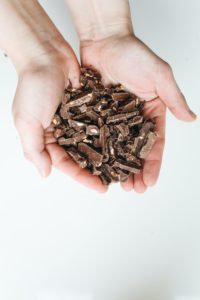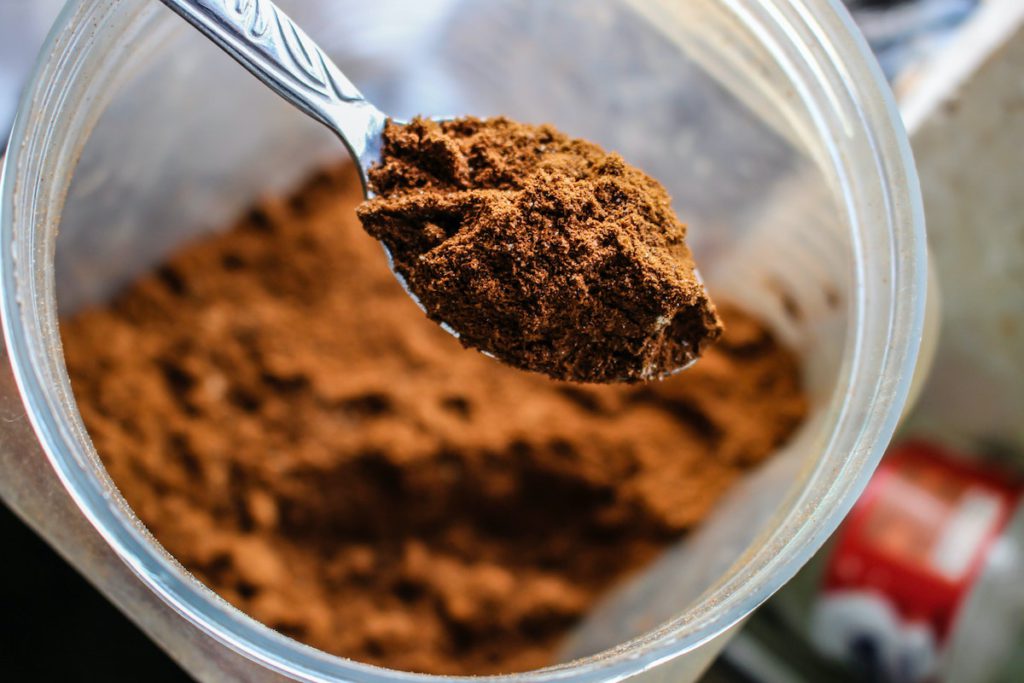While it does not have an official definition, ethical chocolate refers to the way the ingredients in chocolate are sourced and produced. When a chocolate brand advertises itself as having ethically or fairly traded sources, it is an indication that its products are created using only sustainable, ethical practices. On the website of Slave Free Chocolate, the Slave Free Chocolate organization says consumers can tell whether or not their chocolate is ethically sourced by looking for the Fair Trade Certified label on their product; in addition, Cocoa sourced from outside of West Africa is almost always grown ethically, according to the organization, so you may want to also check where a product comes from. Fair Trade Certification also works with farmers to provide a premium for sustainable, ethically-grown cocoa, as well as to reduce child labour and poverty rates in the region.
Several ethical chocolate companies use cocoa beans grown with Fair Trade certification as well as Rainforest Alliance certification. Fortunately, not all chocolate companies are having the same problems; a handful of smaller artisan chocolate companies are actively working to create and sustain a more ethical, Fair Trade cacao industry. There are a number of smaller chocolate makers that completely avoid buying cocoa beans from West Africa in order to avoid being implicated in this complex and tragic problem. In fact, the cocoa industry has a number of sustainability and ethical issues that should raise serious flags for its ardent consumers.
A recent Washington Post report The Post found that the nation’s largest chocolate companies Nestle, Mars, and Hershey Nestle Mars Hershey are not necessarily making their chocolates ethically since although all three brands promised years ago to end their use of cocoa that is grown through child labour, they cannot yet definitively say their products are free from cocoa sourced by child labour. Since the child slavery issues began gaining more attention over the past few years, several journalists have travelled to the Ivory Coast in an effort to shine more light on the situation; however, U.S., in particular, government officials were not too happy about that attention, and have held back a number of journalists seeking to uncover more details about the situation. Two notable works which investigated and brought awareness to issues of child labour, slave labour, and forced labour in cocoa farms are the articles by Peter Whoriskey and Rachel Siegel in The Washington Post Chocolates Child Laborers1 The Washington Post, and Netflix’s series Rotten Episode Two Bitter Chocolate. According to Slave Free Chocolate, the leading grassroots organization working to end child slavery in the cocoa industry, there are 2.3 million children working on cocoa farms in West Africa.

The Ivory Coast and Ghana are the largest cocoa exporters, producing about 70% of global chocolate, and over 2 million children work in cocoa. Those working in the industry — the farmers, farmers, harvesters — are largely in constant poverty, and the low prices of cocoa have made it hard for farmers to employ adults or pay them a fair wage. Despite promises from many major chocolate companies to stop using cocoa harvested by children, much of the chocolate we buy still tragically involves child labour. These missed deadlines for ending the use of child labour are in large part because these large companies are still not in a position to determine what farms produce their cocoa, and by extension whether or not there are children involved in their harvesting.
The big chocolate companies are also responsible for encouraging farmers to rip up West African rainforests to make way for more cocoa plants, and for cutting down Indonesian and Malaysian rainforests in order to make way for palm oil plantations. Rio Nuevo is passionate about developing sustainable livelihoods for cocoa farming communities, and Rio Nuevo accomplishes this by being a Direct Trade, Single Estate, Bean-to-Bar Company. This means Rio Nuevo purchase from and work directly with the farms that produce their cacao, making sure the farmers are paid fair prices and that all working conditions are ethical, their cacao is grown only at a single site (aka single estate), and that they produce chocolate from scratch, starting from cacao beans. When chocolate is ethically sourced, companies are working towards fairer prices, which provides for more sustainable ways of life for farmers and their communities.
Ethical chocolate means the chocolate has been grown, farmed, and produced with the land in mind, and that the company has treated the cocoa farmers fairly. Each chocolate company highlights specific aspects of its bars, whether that is an organic certificate, ethically sourced ingredients, varying flavours profiles, or species of beans. Chocolate products with a USDA organic seal indicate the chocolate has undergone an organic certification process, in which cocoa farmers must meet stringent standards for production, handling, and labelling. Because chocolate is a luxury, rather than a need, as are fruits and vegetables, customers should be encouraged to buy chocolate from a list of approved ethical, sustainable environments from an international certifying body.
Looking for third-party certifications like Fairtrade Certified, Rainforest Alliance Seal, USDA Organic, and Vegan-Certified can help you select chocolate that is sourced from ethically produced beans. Direct-trade producers and those with shorter supply chains are also more likely to source their cocoa ethically. Directly sourced cocoa accounts for roughly half the beans sourced by cocoa and chocolate companies, whereas the indirect supply chain–made up of unaffiliated exporters, traders, and farmers–accounts for the other half.



